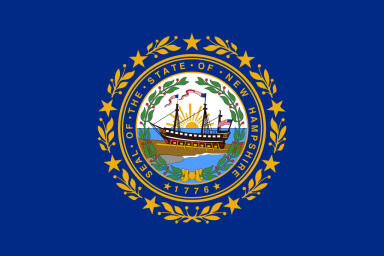Iowa Workers’ Comp Laws

Because of the rigors involved in any workplace, injuries and illnesses caused by occupational incidents can occur unexpectedly. In 2021, the United States Bureau of Labor Statistics found that more than 34,900 nonfatal injuries and illnesses occurred among private employees in Iowa. This is equal to a rate of 3.3 cases for every 100 full-time workers in the state.
Most reported cases involved workers from the manufacturing, education, and health services industries, averaging 4.4 cases per 100 employees. On the other hand, over 5,700 injuries and illnesses were reported among state and local government workers, translating to an average of 3.4 cases per 100 employees.
An injury or illness at work can lead to lost income and other sudden expenditures as the employee takes time off to recover and seek medical treatment. Fortunately, employers must provide workers’ compensation to ensure their employees’ financial losses and setbacks are addressed when they suffer harm at work.
With that in mind, this article will present basic information on the guidelines and processes for filing a workers’ compensation claim in Iowa. It will also discuss possible solutions employees may consider when facing related blockers or issues.
Iowa Workers’ Compensation Insurance Requirements
To help pay for expenditures related to a worker's treatment for injuries and lost wages, Iowa requires businesses with at least one employee to have workers’ compensation insurance. Any employer who does not have this policy can be held liable for the entirety of an injured employee’s losses if they are sued in a tort action. They can also face civil and criminal charges, including a class D felony if they operate without insurance.
Remember that the state’s workers’ compensation law does not cover sole proprietors, partners, or members of a limited liability company, though they have the option of obtaining insurance that specifically provides coverage for them. Others who are exempted from the law include workers with an annual income of less than $1,500, those related to the owner of the business where they work, and casual employees who do not work for business-related purposes.
Employers in Iowa can purchase workers’ compensation insurance from any private insurance firm that is licensed to sell policies in the state. Alternatively, they may choose to be self-insured by following the guidelines and requirements set by the Iowa Insurance Commissioner. They can also contact a Workers’ Compensation Compliance Administrator to inquire about other rules related to exemptions and electing coverage.
According to Chapter 85, Section 54 of the Iowa Code, employers cannot avoid paying for their insurance premiums by forcing employees to pay instead, even if they sign a contract. Moreover, employers may not withhold or deduct money from workers’ paychecks to cover premiums. Anyone who breaks these rules will be charged with a misdemeanor.
Note that self-insured employers and carriers of workers’ compensation insurance in Iowa are required by law to have an assigned representative. This person must have the authority to process and expedite compensation claims from an injured worker and must be aware of the guidelines that fall under the state’s workers’ compensation law.
Employers are required to provide the Iowa Division of Workers’ Compensation with the name, address, and contact information of their representative. Furthermore, they must inform the division of changes related to their representative within 10 days of making such a change.
Iowa Workers’ Compensation Benefits
As mentioned above, an employer in Iowa may use workers’ compensation insurance to provide benefits to an employee who suffers a work-related injury or illness. These will be paid for by the company where they obtained their insurance coverage; self-insured employers will be the ones who cover related expenses instead.
Workers can only receive benefits for injuries and illnesses caused by work-related accidents or hazards. Typically, Iowa’s workers’ compensation law does not apply to an employee who sustains an injury outside of the workplace (such as when they are involved in a car accident on the way to work); instead, they can file personal injury lawsuits to recover damages. Additionally, preexisting health conditions do not make a worker eligible for compensation unless their condition is worsened or aggravated by their duties at work.
In general, workers’ compensation benefits in Iowa include:
Present and future medical treatment for the injured worker’s injury or sickness: This includes seeking alternate sources of treatment if the worker is not satisfied with the medical care they received.
Coverage for expenses related to the worker’s transportation to and from the facility where they receive their treatment: In Iowa, the reimbursement for private auto mileage follows a rate of 29 cents per mile.
Lost wages in case the worker stops working to seek medical care.
Healing period benefits for workers recovering from an injury that resulted in permanent impairment.
Death benefits, including coverage for funeral costs, if the worker dies from their injury or sickness.
Partial and Total Disability Benefits in Iowa
In addition, injured workers can receive compensation for partial or total disabilities brought on by their injury, regardless of whether they are temporary or permanent. Generally, these benefits are equal to 80 percent of the worker’s spendable weekly income, capped at a certain amount. Depending on the disability involved, they can begin and end at different times, as follows:
As indicated in the table, those entitled to receive benefits related to a permanent partial disability will be paid for a set number of weeks, and they often cover the loss of a body part or bodily function. The length of this period depends on the body part that was affected or lost. For example, if a worker loses their hand or its function, they will receive benefits for up to 190 weeks. On the other hand, those who have lost their leg will be compensated for a maximum of 220 weeks.
How to File a Workers’ Compensation Claim in Iowa
To receive benefits after suffering an injury or illness at work, employees in Iowa must first submit a workers’ compensation claim. The process involves different guidelines that apply to both an employee and their employer in terms of how a claim is processed and how those involved are notified about it. The failure of either party to follow these rules can lead to issues and even civil penalties.
When Is the Deadline for Workers’ Compensation Claims in Iowa?
An injured employee will be given up to 90 days to inform their employer of their injury, starting from the date it occurred. This deadline can also begin on the date when the worker learns or should have learned about an injury that they have suffered because of their work. A worker must inform their employer within the given time frame to ensure their benefits are not denied.
If a worker has not been given disability benefits even after filing a claim, they will have a maximum of two years to inform the DWC or file an appeal for arbitration, as stated by the Iowa Code in Chapter 85, Section 26.
Under the same section, a worker who has received weekly compensation due to their injury is given three years to submit a petition for additional benefits or file an action for such with the DWC, starting from the date they receive their last weekly benefits. These statutory deadlines, however, do not apply to medical benefits.
A Step-By-Step Guide on Filing a Workers’ Compensation Claim in Iowa
Step 1: Obtaining Medical Treatment and Reporting The Injury
As soon as a worker suffers an injury or sickness due to a work-related accident, they must seek medical treatment. As mentioned above, they must also notify their employer of the injury or illness. While they have 90 days to report, they should do it as soon as possible to expedite their subsequent compensation claim and avoid issues. In the event that the worker dies from their injury, their representative can file a claim on their behalf.
When seeking medical aid, an employee can choose from providers referred by their employer. The latter must ensure that these providers are able to provide the treatment the employee requires and that they give the employee clear directives regarding their potential options.
Step 2: Waiting for the Filing of the First Report of Injury
If a worker is permanently injured, cannot work for at least three days, or dies from their injury, they or their representative must wait for their employer to file a First Report of Injury form with the Iowa DWC within four days of being notified. This deadline may be extended on Sundays and legal holidays.
The Workers’ Compensation Commissioner can specifically order an employer to file an FROI form if needed. Meanwhile, employees of the University of Iowa can file an FROI form by themselves through the university’s self-service website and file it with the Benefits Office within a maximum of 24 hours.
Step 3: Preparing and Submitting the Claim
After this, the injured worker or their representative can begin completing the required forms for their compensation claim. Generally, these documents will require the worker to state the time and date of the accident that caused their injury and offer a detailed breakdown of the incident. They will also be required to specify the treatments they have received during their recovery, and they must be ready to share any medical information related to their physical or mental condition with the parties involved in their claim if needed.
Additionally, an employee can obtain other documents they can include in their claim, such as a copy of the official report describing the accident that caused their injury and reports for future medical treatment as described by their physician. This will strengthen the basis of their claim and increase their chances of receiving compensation.
Once everything is prepared, the worker can file their claim and documents online or call the DWC at 800-645-4583 or 515-725-4120 for inquiries on where else they can file.
Step 4: Waiting for and Receiving Benefits
After the worker has submitted their claim and required documents, they must wait as the claim is evaluated. During this time, they must also provide other forms or documents that may be required to further verify their claim. Typically, a claim is approved or denied within 11 days; once it has been approved, the worker will begin receiving their benefits from their employer’s insurance carrier.
What Should One Do if a Workers’ Compensation Claim in Iowa Has Been Denied?
If an injured Iowa worker’s claim is denied, they can work with their employer or the insurance carrier involved to address issues related to their claim and the reason for its denial. If the parties involved cannot reach an agreement, the worker has the option to appeal the denial of their claim within 20 days.
They must submit their request for a hearing to the Iowa Workers’ Compensation Commissioner, wherein a deputy commissioner will be assigned to oversee the proceedings. The worker must follow the guidelines involved in the process to ensure that their case progresses smoothly.
If the worker does not agree with the judge’s decision, they can still appeal to the IWCC to review the case and determine whether the decision is fair or not. Afterward, they can appeal to the local district court, the Iowa Court of Appeals, and even the state’s Supreme Court if necessary.
Legal Resources for Injured Workers in Iowa
Iowa Division of Workers’ Compensation
The Iowa Division of Workers’ Compensation is open to employees who wish to learn about the proceedings involved in filing and appealing a workers’ compensation claim. Its website has informational resources that cover topics such as potential compensation benefits and insurance compliance guidelines, along with updates about state rules and regulations involving claims.
In addition, the website has online portals for those who wish to learn how to file an injury report or upload documents via the Electronic Data Interchange or the Workers’ Compensation Electronic System. For additional queries, the Iowa DWC can be contacted at 800-645-4583 or 515-725-4120; those who suffer from hearing issues can reach the division through Relay 711.
Iowa Legal Aid
Iowa Legal Aid is a nonprofit organization that caters to low-income individuals and families in cases and matters related to civil law. Its team of volunteer lawyers assists workers in the state as they file claims for work-related benefits and educates them on their rights in line with local employment and workers’ compensation laws.
The organization’s website also offers access to relevant resources that discuss different legal topics; in addition, these are available in Spanish for Hispanic citizens who do not speak English. Those who wish to apply for legal aid can call the organization at 1-800-532-1275 or register through its website.
Free Legal Answers - Iowa
Created and managed by the American Bar Association, Free Legal Answers handles inquiries related to civil law matters, including employment and unemployment issues. Iowans can register on its website to submit online inquiries that will be addressed by volunteer attorneys at no cost. After receiving a reply, users can submit other questions if they have any. However, the clinic cannot connect people to an attorney for potential legal representation, and it cannot address issues related to criminal law.
Iowa Guide to Workers’ Compensation
The Iowa Guide to Workers’ Compensation can be accessed online by those who wish to learn more about the state’s laws, guidelines, and statutory limitations for workers’ compensation claims. The manual offers a basic overview of the benefits an injured worker can claim and the details behind settlements, lump sum payments, and disability benefit calculations. Additionally, it informs employees about their eligibility for compensation and the steps they can take if they suffer an injury or illness at work.
Expertise.com StaffAuthor
Step into the world of Expertise.com, your go-to hub for credible insights. We don't take accuracy lightly around here. Our squad of expert reviewers, each a maestro in their field, has given the green light to every single article you'll find. From rigorous fact-checking to meticulous evaluations of service providers, we've got it all covered. So feel free to dive in and explore. The information you'll uncover has been stamped with the seal of approval by our top-notch experts.




